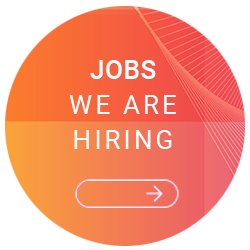Last Updated on 26. March 2025
On January 29, 2025, the low-code theme evening for employees of the Berlin administration took place in our Berlin office. In cooperation with the Berlin Senate Chancellery, we were able to organize a successful evening with professional exchange and networking opportunities. The event offered an agenda with practical insights into low-code development and its potential for public administration. A particular focus was on the topic of AI modeling and the opportunities that artificial intelligence (AI) opens up for low-code modeling. Training opportunities for low-code in the state of Berlin were also discussed with the participants.
The themed evening began with a welcome from Thorsten Szutzkus from the Berlin Senate Chancellery and Jan Samek, Business Development Manager at mgm. Both emphasized the relevance of innovative approaches such as low code for the digitalization of the Berlin administration and thus set the framework for the evening.
Part 1: The mgm low code approach
Janos Standt, Head of Public Sector at mgm, kicked off the content-related contributions with a classification of the mgm low-code approach with the A12 platform. In his short presentation, he outlined the fundamental advantages and possible applications of A12 for public administration and highlighted the platform’s potential for complex public sector projects, such as ELSTER. He emphasized that the professional procedures and standards of industrial software development, especially in areas such as security, accessibility, build & deployment, must also be taken into account for low-code projects.
Part 2: AI Modeling: How AI is changing low-code modeling
The second block, which was designed by Dr. Jan Jikeli, mgm Head of AI, Christine Wiederer, mgm Front End Developer and Low Code Expert, and Jan Samek, mgm Business Development Manager, was dedicated to the topic of “AI Modeling” – a real highlight of the evening. In a combination of technical presentation and live demo, the speakers showed how artificial intelligence can revolutionize low-code modeling. At the same time, they showed how AI is already part of everyday project work on professional low-code platforms such as A12 and can be actively used by specialist users. From the automated model generation of complex applications to increasing efficiency through the use of AI agents, the versatile potential of AI became clear. The subsequent discussion with the participants showed the great interest and relevance of this topic in practice.
Part 3: Low code for scalable portal solutions – using the example of the OZG portal of the German chambers of tax advisors
In the next presentation, the focus turned to practical applications with an exciting insight from Alexander Schüffner, Vice President of the Federal Chamber of Tax Consultants and President of the Berlin Chamber of Tax Consultants, and Dr. Moritz Alt, Project Manager and Managing Director of the Nuremberg Chamber of Tax Consultants. It was shown how an OZG application portal for 21 chambers was established using low code in an agile and iterative approach. Moritz Alt showed that the use of a low-code platform such as A12 enables the application portal to be expanded into a fully comprehensive service portal in the next step and that existing solutions can also be expanded with regard to fully digital processing. The German chambers of tax advisors are also relying on the use of AI and blockchain technology for this.
At the end of the evening, Birgit Marzinka from the Berlin Academy of Administration presented the first concepts for a possible training program for low-code users in the state of Berlin. An interdisciplinary collaboration between various Senate administrations and the Senate Chancellery was used to identify needs. Different user groups were outlined using personas and initial pilot training courses were designed. The subsequent discussion revealed the great interest of the district and senate administration in low-code training courses.
Finally, a new training program from the Berlin Administration Academy was presented, which focuses on low code and provides targeted support for future users.
Networking and exchange
The evening ended with a get-together over drinks and finger food. This gave the 40 or so participants the opportunity to discuss the evening’s topics in greater depth and make new contacts. The low-code theme evening showed the exciting possibilities that lie in low-code development for public administration and how forward-looking AI technologies are in this context.
Our next events
mgm Managing Director Hamarz Mehmanesh will be speaking on the topic of low code in public authorities on February 6 in the “Low Code / No Code” expert forum at the Zukunftskongress Bayern. And AI will also be the focus of the next Berlin Administration Innovation Forum, which we will be holding together with Fujitsu and Syncwork on February 12, 2025. You will also find us at Bitkom Transform on March 19 and 20, 2025 – we will be happy to answer any questions you may have on the topics of AI and low code. Talk to us, we look forward to meeting you!
Further information:
- Website: A12 Low Code Platform







